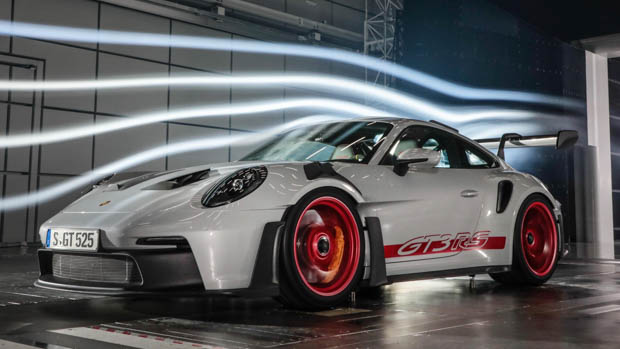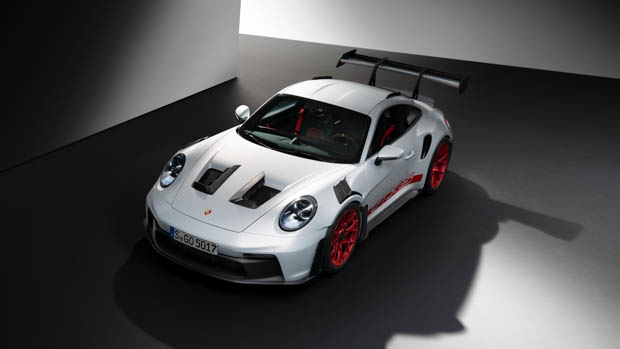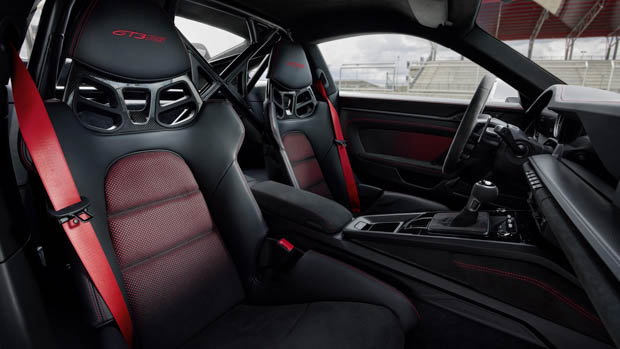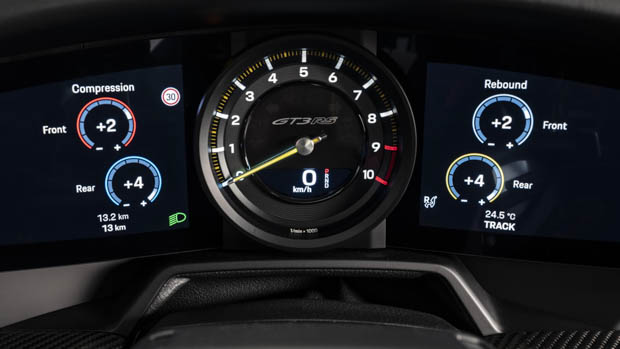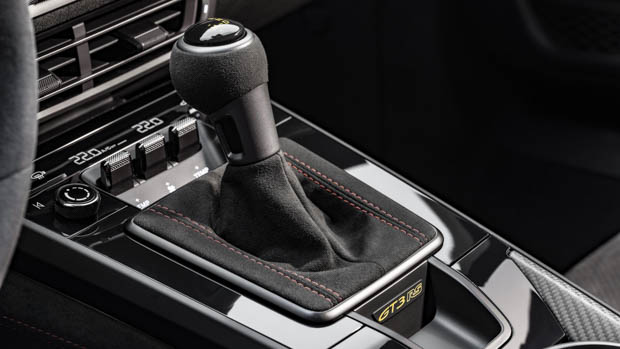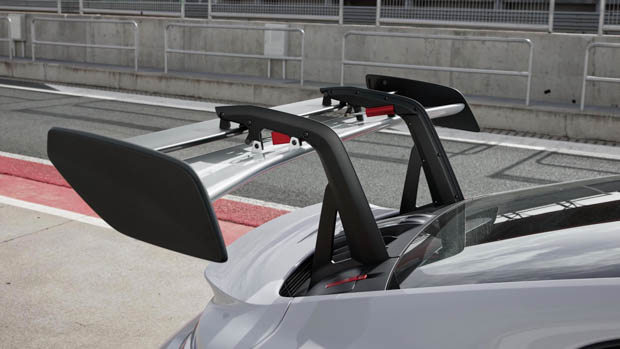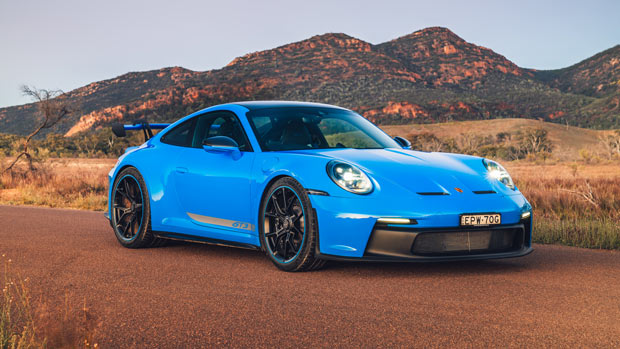-
Car Reviews
- Car News
-
Car Comparisons
Latest comparisons
- Chasing Deals
Porsche is pushing its track-focused road car to the next level, with 386kW of power, active aerodynamics and a pricey entry cost
Porsche has revealed its most hardcore, track-focused 911 offering: the new 992-generation GT3 RS.
Despite the outrageous aerodynamic features and race-bred technologies, the new GT3 RS remains a road-legal, registrable car.
Porsche has added a large drag-reduction wing to the rear of the car that not only provides helpful downforce – up to 860kg at 285km/h – but also relieves overall drag and helps streamline the car against air resistance.
The rear wing is actually two parts that can be electronically adjusted depending on the driver’s input, along with an air brake function that deploys when braking from very high speeds.
The Porsche 911 GT3 RS is due in Australia in 2023 with deliveries to commence in the second quarter. The GT3 RS will cost buyers $500,200 before on-road costs.
The engine in the 2022 911 GT3 RS is a 4.0-litre flat-six unit and is naturally-aspirated, with total power now sitting at 386kW. This engine is the same one fitted to the ‘regular’ GT3, however it has been further optimised according to Porsche.
The camshafts and cam profiles are all new for the RS, with the single throttle mechanism and valve drive directly derived from racing cars.
Porsche has added air intakes underneath the new RS to aid cooling for the PDK transmission, which is likely to get extremely hot during track days.
In terms of suspension upgrades, the RS features three different modes: Normal, Sport and Track.
With track mode, the suspension can be electronically adjusted. Areas such as rebound and compression damping of the front and rear axle can be adjusted independently from one another in several stages.
The rear differential can also be adjusted through controls on the steering wheel via rotary dials. The drag reduction system controls are also located on the steering wheel, in a very motorsport-esque setup.
To pull the GT3 RS up from very high speeds, Porsche has fitted larger 408mm discs (up from 380mm in the last-gen car) to the front axle, with 380mm discs remaining for the rear.
Owners have the option of adding carbon-ceramic brakes to their new GT3 RS. These are slightly larger 410mm discs at the front and 390mm discs at the rear.
Road legal sports tyres cover forged alloy centre-lock wheels, measuring in at 275/35/20 at the front and a massively wide 335/30/21 size at the rear.
Porsche have made extensive use of lightweight materials and have implemented carbon-fibre-reinforced-polymers (CFRP), or carbon fibre for short, in the doors, front wings, roof and front lid, while inside the material has also been used in the standard bucket seats.
Both Clubsport and Weissach packages will be available as options for Porsche’s new flagship RS car.
The Clubsport package is available at no extra cost and includes a steel roll bar, a hand-held fire extinguisher and six-point harnesses for the driver.
For an extra cost, the Weissach package will include several more features including the front lid, roof, parts of the rear wing and exterior mirror finished in carbon fibre, a CFRP roll cage (which saves six kilograms over a steel one) and special PDK paddles.
Finally, a set of lightweight magnesium forged wheels are available for an optional cost, which saves a further eight kilograms.
The last GT3 RS was the 991.2 version, which was launched in 2018 and was sold here in Australia. Much like the new 992 GT3 RS, the 991.2 version also used a 4.0-litre naturally-aspirated flat-six engine and made just 3kW less than the new 922 GT3 RS.
What the 991.2 variant didn’t have was an adjustable and electronic rear wing, and missed out on having the dual driver screens that the new RS has.
Downforce for the 991.2 RS variant was 144kg at 200km/h, whereas the new GT3 can manage 409kg at 200km/h.
What about the price? The outgoing 991.2 GT3 RS cost $416,000 before on-road costs in 2019. Now, the new 911 GT3 RS will cost $84,000 more. That’s almost the cost of a brand-new Ford Ranger Raptor.
Latest news
About Chasing cars
Chasing Cars reviews are 100% independent.
Because we are powered by Budget Direct Insurance, we don’t receive advertising or sales revenue from car manufacturers.
We’re truly independent – giving you Australia’s best car reviews.
